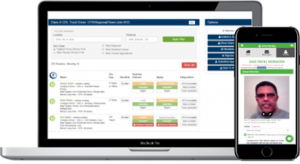
There is no one size fits all solution when it comes to trucking insurance for owner operators. You’ll have different insurance options available based on your haul type, range, level of experience, and driving record. Also, insurance requirements vary by state, so be sure to review your state’s regulations for your specific haul type and needs. We spoke with several trucking insurance experts, and they shared their top tips for choosing insurance as an owner operator.
What Types of Insurance Do Owner Operators Need?
The exact trucking insurance that you will need as an owner operator will vary. The best thing to do is talk to an insurance retailer that specializes in trucking insurance. They will be able to give you details on your specific situation. That said, here are a few basic insurance types to know:
Liability Insurance
Primary liability insurance covers damage to the tractor or trailer, and most owner operators need a minimum of $750,000 in coverage. That number will go up if you’re hauling hazmat or other riskier loads. Adding physical damage coverage to liability coverage can protect against potholes, weather conditions, and similar damage.
Cargo Coverage
Cargo coverage protects the goods that you haul. In the event of an accident, you need to know that the load you’re carrying is covered. Cargo coverage is specific to owner operators who are running under their own authority.
Non-Trucking-Liability (NTL) & Bobtail Coverage
If you are an owner operator who is running under a company’s authority, you will need NTL and Bobtail coverage. NTL covers drivers when they use their truck for non-businesses purposes such as a stop at the grocery store or an outing with friends. Bobtail policies also cover drivers who are returning from a deadhead load while still under dispatch.

David Zahm, Director of New Business at Robley Insurance
If you are partnering with a specific company, David Zahm, Director of New Business at Robley Insurance, encourages owner operators to do their research:
“I would encourage an owner operator to vet a company they’re going to work with. …Ask the trucking company directly, ‘I’d like to see a copy of your CAB report.’”
That information is powerful for drivers. You have to protect your own safety record, and a company with a poor CAB report is a huge red flag.
Passenger Accident Coverage
Passenger accident coverage provides insurance protection for guest passengers in your vehicle. While your passengers may not be part of the nuts and bolts of operating your truck, people are one of the most valuable assets in life. Passenger Accident Coverage helps give you peace of mind when you have someone else in the truck with you.
What Factors Affect Insurance Prices?
Trucking insurance for owner operators varies greatly. The level of insurance coverage that you need will affect pricing, but there are several other factors as well.

Joy LaFrance, Chief Underwriting Officer for One80 Intermediaries
CDL experience plays a big role in being approved for trucking insurance and pricing. According to One80 Intermediaries’ Chief Underwriting Officer, Joy LaFrance, underwriters want to see a minimum of 3 years of CDL experience and a CDL license in the state that you operate. Drivers with less than 3 years of experience may have a hard time finding insurance from a retailer that specializes in transportation. Underwriters and insurance retailers need evidence of a clean driving record and good business management.
One80 Intermediaries’ Chief Underwriting Officer, Joy LaFrance, noted:
“Preferred programs don’t typically take anyone that’s new in business less than 3 years unless they have 5 years prior experience. So the pricing for the first 2 to 3 years could be astronomical until they have proof that their loss history is good, that they are maintaining driver files, and that they are maintaining their vehicle.”

Jeff Ice, Transportation Practice Leader for Risk Strategies
Jeff Ice, the retired Transportation Practice Leader for Risk Strategies, confirmed:
“The only thing that really gives an underwriter some comfort as to what they’re going to insure is experience. So, if there’s no experience, yes there are places you can get insurance, but you’re going to pay the piper.”
An owner operator’s driving record is another factor. A good safety record is critical. Insurance carriers will look at inspection records, hours of service violations, driver fitness tests, logbook violations, and truck maintenance records among other things. They may also look for proper signage and safety features on your vehicle like fog lamps or deer guards.
A final determining factor on insurance price is down payment. If you are able to pay the insurance premium in full, insurance carriers may discount the total cost. The full lump sum is a big upfront cost, but it’s usually cheaper overall.
What Will Your Carrier Provide?
If you are an owner operator partnering with a single carrier or are a lease purchase driver, that carrier may offer insurance. If they do, read the fine print closely to decide whether it is the best option for you.
Ask questions to understand what is and is not covered. The insurance may not cover you while you are not operating under that company’s authority. That includes the time you may be working with other companies or traveling home when you are off duty. In addition, make sure that the carrier offers coverage levels that meet your specific insurance needs. Insufficient coverage will impact your eligibility to haul certain types of freight and can affect your bottom line. When asked about carrier insurance, Chief Underwriting Officer Joy LaFrance shared this:
“When they’re operating under the authority of someone else, what happens is, if [owner operators] leave and decide ‘I’m going to go on my own now,’ they have no history. So they basically are starting over. Unless I can get the data from that motor carrier, with all the claims, by driver, there’s no way to actually assess [owner operator] history.”
LaFrance added that when drivers use a carrier’s equipment and, “are only asked to get a non-trucking liability or bobtail liability, that does not count as primary insurance. We can’t use your non-trucking or bobtail liability for proof that you had no incidents.”
To decide if insurance through a carrier is right for you, think about your future goals. Will you keep expanding your business? Will you eventually run under your own authority and need a good insurance record? If so, you may do better with an insurance plan that is independent of any carriers so you can prove your record.
Where Can You Find Providers?
The best insurance retailers for owner operators specialize in transportation. A generalist won’t necessarily understand all the nuances that you need for the job. Shop around for both price and good coverage. If you are a new owner operator, you may have to rely on generalized national insurance carriers. When possible though, look for specific trucking insurance retailers.
Risk Strategies’ Jeff Ice offered this suggestion:
“As an owner operator just getting into the business, my first phone call would probably be to [OOIDA]. They would be able to turn you on to how to get your authority, do you need your own authority…[They] will be able to give you a lot of direction.”
One of the best ways to find a top trucking insurance policy is to ask owner operators! Find out where they get insurance and what they like or don’t like. There’s nothing better than a firsthand account, and other drivers aren’t trying to sell you on anything. An experienced owner operator is one of the best places to get suggestions.
Robley Insurance’s David Zahm left us with this advice for sustainable growth:
“You’ve got to start one [truck] at a time, and build slowly. … [If you try to grow too quickly,] you’ll end up with a distressed insurance company, and their rates are astronomical, which shrink your margins down…If somebody wants to run a trucking company the right way, then there’s a way to do it, and they have a chance to be very successful.”
Becoming an owner operator is an exciting step, and trucking insurance is a key part of that transition. Successful owner operators build slowly toward long-term goals and focus on sustainable growth. That’s an investment in yourself worth making.

Find an Owner Operator Job
Drive My Way matches you with a CDL job based on your personal preferences and qualifications.
Create a Free Profile


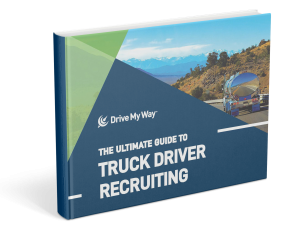


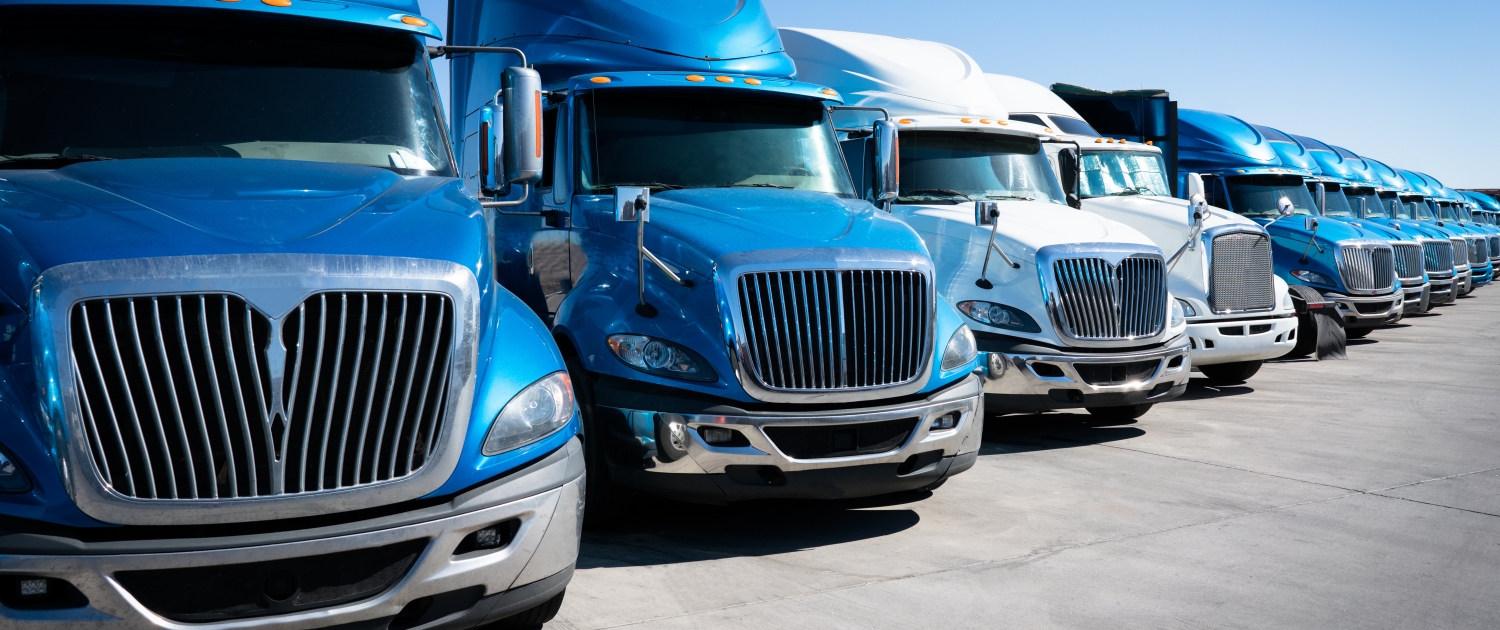 As it stands right now,
As it stands right now, 

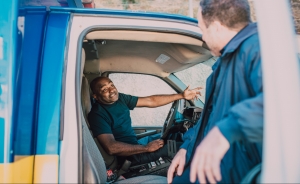

 Diesel fuel prices are finally beginning to fall. For the first time since March 2022, the average price for a gallon of diesel
Diesel fuel prices are finally beginning to fall. For the first time since March 2022, the average price for a gallon of diesel 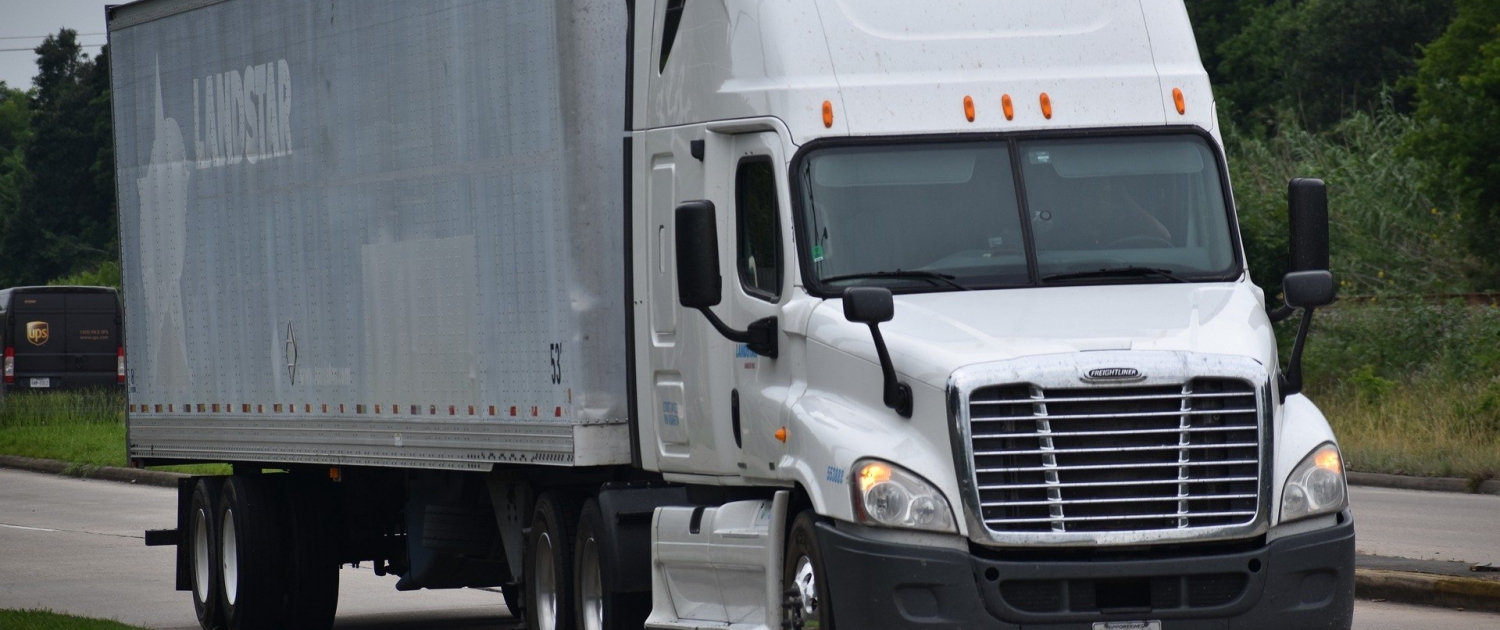 Truck driving isn’t a one size fits all type of job. Drivers have choices for everything from the kind of freight they haul, how far they drive, and where they drive. But before they decide if they want to haul dry van or hazmat, or run OTR or local, they need to make two decisions first; Whether they want to drive under their own authority and what kind of trucking carrier they want to drive for.
Truck driving isn’t a one size fits all type of job. Drivers have choices for everything from the kind of freight they haul, how far they drive, and where they drive. But before they decide if they want to haul dry van or hazmat, or run OTR or local, they need to make two decisions first; Whether they want to drive under their own authority and what kind of trucking carrier they want to drive for. Company drivers work as employees under the authority of a trucking company. This arrangement is where most truck drivers fall. The biggest benefits of being a company driver are the health benefits and lack of financial investment on the part of the driver.
Company drivers work as employees under the authority of a trucking company. This arrangement is where most truck drivers fall. The biggest benefits of being a company driver are the health benefits and lack of financial investment on the part of the driver.  Truck drivers can make a lot of money bring an owner operator, but the initial costs associated with it can be too much for many drivers. This is where
Truck drivers can make a lot of money bring an owner operator, but the initial costs associated with it can be too much for many drivers. This is where  An owner operator is a truck driver who owns (or has financed) his or her own truck and drives under their own authority. Generally speaking, drivers will only become owner operators after years of experience on the road working as a company driver.
An owner operator is a truck driver who owns (or has financed) his or her own truck and drives under their own authority. Generally speaking, drivers will only become owner operators after years of experience on the road working as a company driver. 




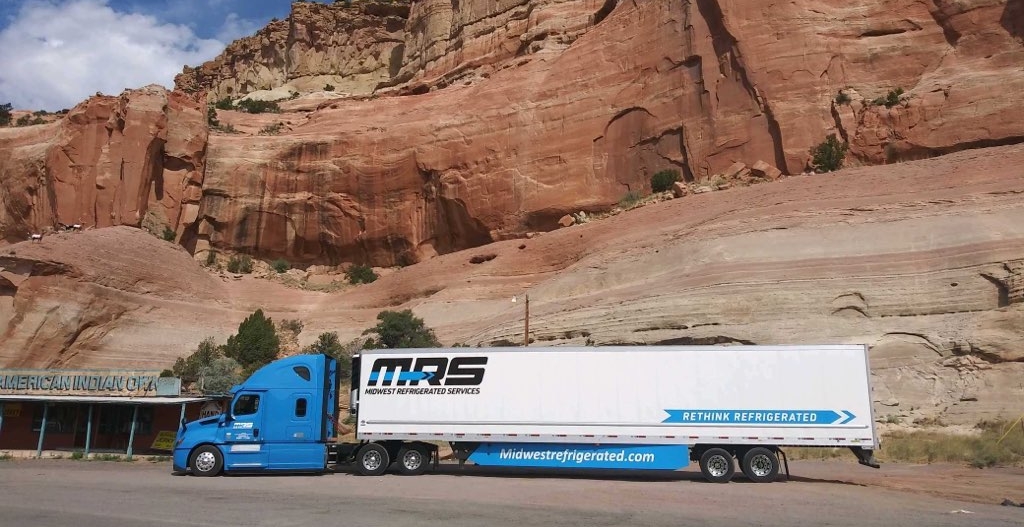
 Midwest Refrigerated Services (MRS) is hiring CDL A drivers to haul fresh and frozen temperature-controlled freight. Family owned and operated for more than 60 years, Midwest Refrigerated Services is a growing leader in LTL refrigerated transportation and storage. Our team takes pride in the role we play in putting food on the table for millions of Americans every night. Our team of professional drivers represent our customers well, set high standards for themselves and are safe, confident, and independent. Discover the MRS difference!
Midwest Refrigerated Services (MRS) is hiring CDL A drivers to haul fresh and frozen temperature-controlled freight. Family owned and operated for more than 60 years, Midwest Refrigerated Services is a growing leader in LTL refrigerated transportation and storage. Our team takes pride in the role we play in putting food on the table for millions of Americans every night. Our team of professional drivers represent our customers well, set high standards for themselves and are safe, confident, and independent. Discover the MRS difference!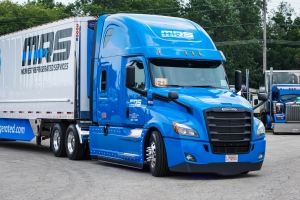 Compensation:
Compensation: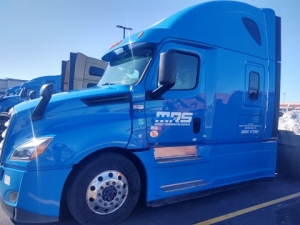 Compensation
Compensation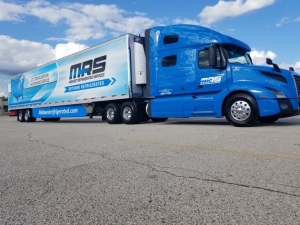

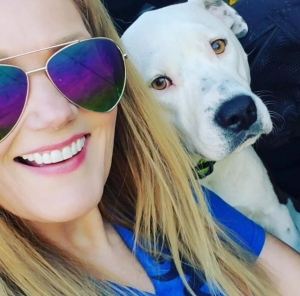
 Getting your own truck on the road is so much more than buying a rig. For one thing, all trucks have a series of required permits. Lease purchase programs typically provide those permits for anyone in their program. It’s a great way to save yourself from jumping through a few extra hoops. In addition, getting your permits through a company will get you on the road a little faster.
Getting your own truck on the road is so much more than buying a rig. For one thing, all trucks have a series of required permits. Lease purchase programs typically provide those permits for anyone in their program. It’s a great way to save yourself from jumping through a few extra hoops. In addition, getting your permits through a company will get you on the road a little faster.
 As you consider lease purchase programs, don’t forget about
As you consider lease purchase programs, don’t forget about 
